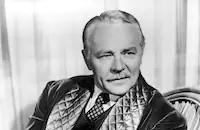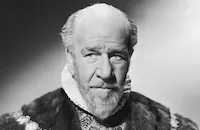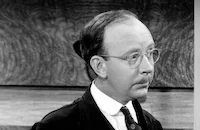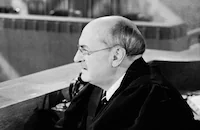Hearts Divided

Brief Synopsis
Cast & Crew
Frank Borzage
Marion Davies
Dick Powell
Charles Ruggles
Claude Rains
Edward Everett Horton
Film Details
Technical Specs

Synopsis
In 1803, Napoleon Bonaparte is negotiating with the United States for the sale of the Louisiana territory. He sends his brother Jerome to America as his ambassador. Arriving incognito at the races in Baltimore, Jerome meets Betsey Patterson, the attractive daughter of Charles Patterson, one of the negotiators. Still in disguise, he applies for the job of her French tutor, and the two fall in love. Jerome, however, is fired from his tutoring job for defending Napoleon too vigorously. After the Louisana purchase is completed, Jerome returns to the Patterson household as himself. The Pattersons are slightly embarrassed, but welcome him. Some time later, Betsey and Jerome announce their engagement, to the dismay of Jerome's counselors, who have received word that Napoleon wants Jerome to return to France to marry the Princess of Wurtemberg, a political alliance that will help Napoleon in the war he is fighting against England. Jerome refuses and sets sail for France with Betsey, intending to marry her once they land, but Napoleon meets the ship and, speaking privately to Betsey, asks her to give Jerome up for the good of France. At first, she will not agree, but finally she leaves without saying goodbye to Jerome. She resigns herself to a lonely life without Jerome. He, however, cannot do without her and follows her back to America.

Director

Frank Borzage
Cast

Marion Davies

Dick Powell

Charles Ruggles

Claude Rains

Edward Everett Horton

Arthur Treacher

Henry Stephenson
Clara Blandick
John Larkin

Walter Kingsford

Etienne Girardot

Halliwell Hobbes
George Irving Pres. Thomas Jefferson

Beulah Bondi
Phillip Hurlic
The Hall Johnson Choir

Hattie Mcdaniel
Sam Mcdaniel
Freddie Archibald

Hobart Cavanaugh
John Elliott

Granville Bates
Clinton Rosemond

George Andre Beranger
Gaston Glass

Wilfrid Lucas
Florence Fair
Ethel Sykes
Leigh De Lacy
George Davis
Stuart Holmes
Louise Bates
Crew
Frank Borzage
Lew Borzage
Harry Joe Brown
Laird Doyle
Al Dubin
George Folsey
Leo F. Forbstein
John Gates
Robert Haas
William Holmes
Orry-kelly
Casey Robinson
Jack L. Warner
Harry Warren

Film Details
Technical Specs

Articles
Hearts Divided
The film Hearts Divided had been made once before in 1928 with Dolores Costello and Conrad Nagel. It was adapted from a stage play called Glorious Betty. But the actual plot of Hearts Divided is based on a true story. Jerome Bonaparte, the youngest brother of Napoleon and officer in the French Navy, was sent by his brother to the US as a good will ambassador in 1803. While in America, Jerome met and fell in love with the daughter of a Baltimore banker, Elizabeth Patterson. Jerome married Elizabeth against the wishes of his brother, only to have Napoleon annul the marriage three years later. Despite his having a child from the marriage to Elizabeth, Napoleon then forced Jerome to marry Katharina of Wurtemberg, making Jerome king of the conquered German territory of Westphalia.
Luckily, Hollywood treats the lovers Betsy and Jerome with a little more compassion. The couple is even granted a second chance at happiness by Claude Rains' Napoleon. And in real life, Davies and Powell's friendship would continue with Powell making a third film for Hearst's company (without Marion), the popular Shipmates Forever (1935).
Director: Frank Borzage
Producer: Harry Joe Brown, Marion Davies
Screenplay: Laird Doyle, Casey Robinson, Rida Johnson Young (play)
Cinematography: George J. Folsey
Music: Al Dubin, Harry Warren
Art Direction: Robert M. Hass
Cast: Marion Davies (Betsy Patterson), Dick Powell (Captain Jerome Bonaparte), Charles Ruggles (Senator Henry Ruggles), Claude Rains (Napoleon Bonaparte), Edward Everett Horton (Senator John Hathaway), Arthur Treacher (Sir Harry).
BW-76m.
by Stephanie Thames

Hearts Divided
Quotes
Trivia
Notes
Rida Johnson Young's play was based on the actual marriage between Napoleon's brother and Elizabeth Patterson in 1803. The marriage produced one son and was annulled by Napoleon's order in 1805. Jerome Bonaparte then married Princess Catherine of Wurtemberg and was made King of Westphalia. Eighteen minutes were cut from the film between its Hollywood preview and the New York opening. Modern sources add the following information: Dick Powell was cast on Marion Davies' request. The script was started by Casey Robinson in September 1934, prior to Cosmopolitan's arrival at Warner Bros., with Leslie Howard and Jean Muir to star. After ten days shooting, William R. Hearst ordered production cancelled and had the script rewritten by James K. McGuinness and Charles Lede4rer. Jean Negulesco also contributed to the script. Erich Wolfgang Korngold composed some of the music. Modern sources also note that at one time the film had the working title Glorious. The play had been filmed previously in 1928 under the title Glorious Betsy. This part-talkie film starred Dolores Costello and was directed by Alan Crosland (see AFI Catalog of Feature Films, 1921-30; F2.2126).















